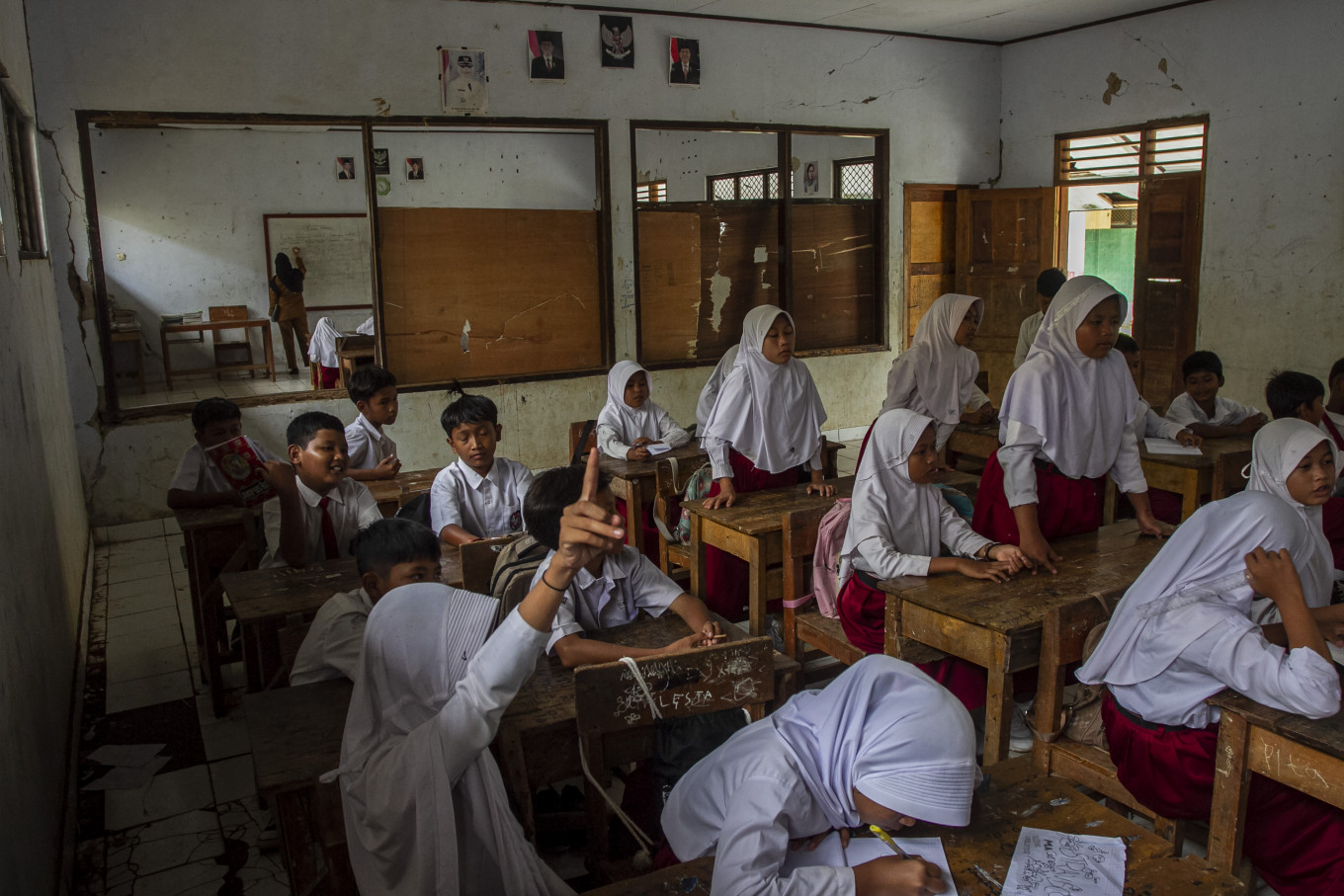Popular Reads
Top Results
Can't find what you're looking for?
View all search resultsPopular Reads
Top Results
Can't find what you're looking for?
View all search resultsUnderstanding national IQs and rejecting the Indonesian mockery
Immediate policy changes in Indonesia should be paired with long-term strategies nurturing cultural shifts that value education and critical thinking.
Change text size
Gift Premium Articles
to Anyone
 Room for improvement: Students participate in classroom activities at the SD Negeri Karangbolong 2 elementary school in Cigeulis, Pandeglang regency, Banten, on Nov. 10. The management of the public school said three classrooms had been severely damaged since four years ago, which has disrupted learning. Local authorities have not yet taken the necessary measures to solve the situation. (Antara Foto/Angga Budhiyanto)
Room for improvement: Students participate in classroom activities at the SD Negeri Karangbolong 2 elementary school in Cigeulis, Pandeglang regency, Banten, on Nov. 10. The management of the public school said three classrooms had been severely damaged since four years ago, which has disrupted learning. Local authorities have not yet taken the necessary measures to solve the situation. (Antara Foto/Angga Budhiyanto)
A
n alarming trend in public discourse and media has emerged, where national IQ scores from countries like Indonesia are compared to the intelligence of animals, such as chimpanzees. This practice is baseless and dehumanizing and reflects a fundamental misunderstanding of what national IQ scores represent.
The national IQ estimates are drawn from Richard Lynn and Gerhard Mesenberg's study "National IQs Calculated and Validated for 108 Nations" (2024), which builds on earlier work by Lynn and Tatu Vanhanen. While these scores do not represent innate intelligence, they can offer insight into the structural factors, such as education quality, public health and socio-economic conditions, that shape cognitive development.
Viewing these scores as definitive is misleading; instead, they should be seen as indicators of structural factors that support or hinder cognitive development.
A national IQ score, such as 87 for Indonesia or 94 for Vietnam, reflects averages derived from cognitive tests conducted within each country. This reflects the combined outcome of individual test scores but does not measure each person’s intelligence.
The IQ scale averages 100, with a standard deviation of 15, meaning most people score between 85 and 115. Scores above 130 are considered highly gifted, while those below 70 may indicate cognitive challenges.
Countries with well-funded, equitable education systems often report higher national IQs, and low teacher salaries are not an option. Ensuring teachers' welfare is crucial, as it directly impacts education quality and student outcomes.
However, discussions about education must also consider the broader supporting systems. High employment rates, driven by strong industrial activity, pension and health protections, human rights, anticorruption measures and merit-based systems are equally important. These factors enable families to provide proper nutrition and create environments conducive to cognitive development.


















